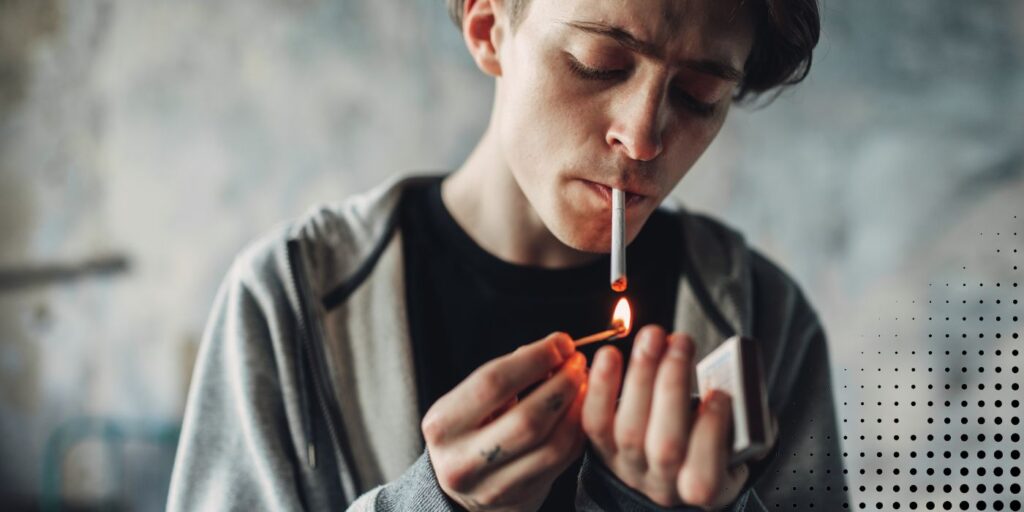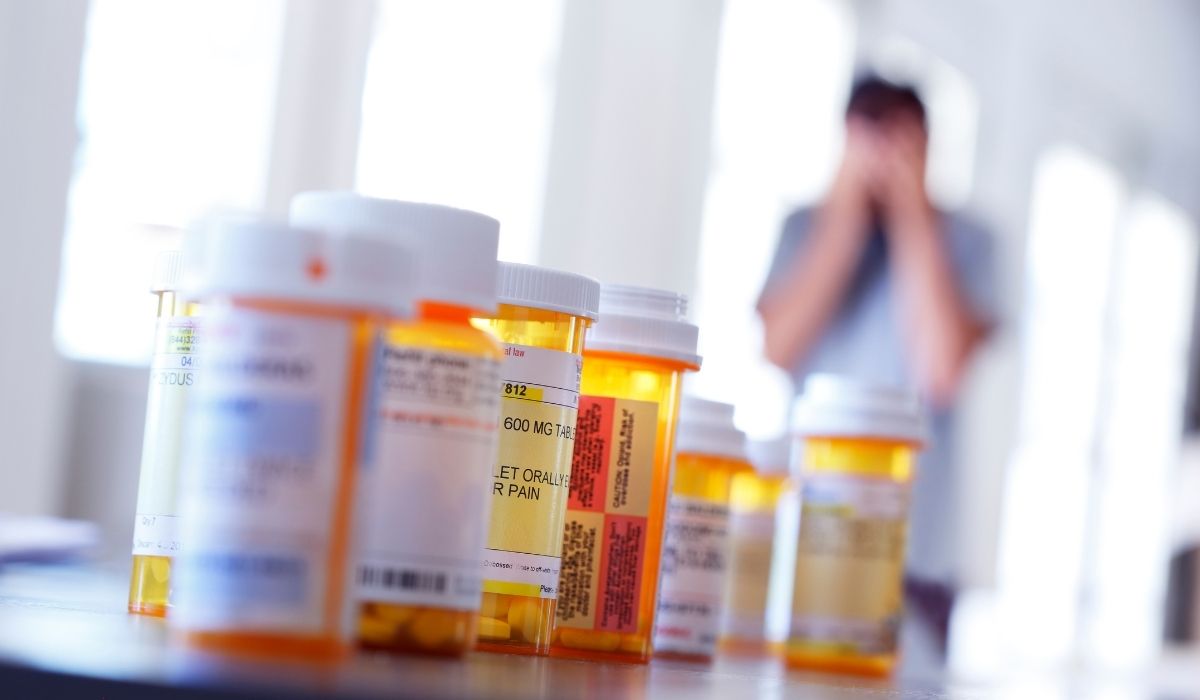Why Are Benzodiazepines Addictive?
Benzodiazepines, also called “benzos,” are medicines that help people with anxiety, insomnia, or seizures. They are often used to calm the brain and body. But many people wonder: why are benzodiazepines addictive?
In this article, we’ll explain why these drugs can be so addictive, how they affect your brain and health, and what to do if someone needs help.

What Are Benzodiazepines?
Benzodiazepines are a type of prescription drug often used for mental health conditions like anxiety disorder, panic disorder, and insomnia. They are sedative drugs, which means they slow down the central nervous system and make you feel calm or sleepy.
Common Benzodiazepine Medications
Some well-known benzodiazepines include:
-
Alprazolam (Xanax)
-
Lorazepam (Ativan)
-
Diazepam (Valium)
-
Clonazepam (Klonopin)
-
Chlordiazepoxide
-
Temazepam
-
Triazolam
-
Midazolam
-
Oxazepam
-
Clobazam
-
Flunitrazepam
-
Clorazepate
These medicines come in tablet or liquid form and are often given by a physician or mental health professional for short-term relief.
How Do Benzodiazepines Work?
Benzodiazepines work by affecting a neurotransmitter in the brain called GABA (gamma-aminobutyric acid). GABA helps calm nerve activity. When benzos attach to the GABAA receptor, they make GABA work even better. This slows down the nervous system, causing:
-
Sleep or somnolence
-
Lower blood pressure
-
Reduced anxiety
-
Less stress
-
Muscle relaxation
They can help with seizure disorders, epilepsy, and during alcohol detoxification or drug detoxification.

Why Are Benzodiazepines Addictive?
The addiction risk comes from how benzos affect the brain’s reward system. The desire to feel calm or happy can lead people to take more than the prescribed dose. Over time, the brain changes and becomes dependent on the drug.
Here’s why benzos are addictive:
-
Quick onset of action brings fast relief, making it easy to crave.
-
They change how the neuron sends signals in the nervous system.
-
They can cause a “feel-good” effect in the mind tied to pleasure and motivation.
-
Long-term use can lead to physical dependence and substance dependence.
Signs of Benzodiazepine Addiction
Someone with benzodiazepine use disorder may show:
-
Needing a higher dose for the same effect
-
Feeling sick during drug withdrawal
-
Using the drug even when it’s harmful
-
Ignoring health warnings from a health professional
-
Mood swings or depression
-
Poor memory
-
Trouble thinking clearly (dementia-like signs)
-
Headaches, vomiting, or diarrhea
Benzodiazepine Withdrawal Symptoms
When someone stops taking benzos suddenly, withdrawal symptoms may occur. This is a sign of addiction and should be managed with help.
Common withdrawal symptoms include:
-
Anxiety
-
Irritability
-
Panic
-
Seizure
-
Depression
-
Suicidal ideation
-
Dysarthria (slurred speech)
-
Weakness
-
Appetite changes
-
Fear
-
Psychosis
This can be dangerous. Drug detoxification should be done with a mental health professional, especially if the patient has a dual diagnosis (both mental illness and addiction).
What Makes Benzodiazepines More Risky?
Mixing With Other Substances
Benzos become more dangerous when mixed with:
-
Alcohol
-
Opiates or opioids
-
Stimulants like methamphetamine
-
Cannabinoids
-
Other controlled substances
This mix can cause:
-
Slowed breathing
-
Coma
-
Toxicity
-
Death
Overuse or Long-Term Use
Taking benzos for too long increases the risk of:
-
Physical dependence
-
Lower efficacy
-
Trouble with mental health
-
A stronger need for higher doses
-
Needing benzo addiction treatment
Benzodiazepine Addiction Treatment Options
If you or someone you know is struggling, help is available. Benzo addiction treatment should be safe and planned by experts.
Medical Detox
Drug detoxification is the first step. A team of health care providers watches for withdrawal signs and uses tools like:
-
Anticonvulsant drugs for seizures
-
Nonbenzodiazepine medications like zolpidem
-
Antidepressant or mood disorder medications
-
Methadone or similar for mixed addictions
Therapy and Mental Health Care
Mental and emotional support is just as important. Treatments may include:
-
Dialectical behavior therapy (DBT)
-
Psychology and psychiatry sessions
-
Contingency management (reward-based therapy)
-
Support groups and coping tools
-
Primary care follow-up for health checks
Insurance and Access to Care
Many places accept health insurance, Medicaid, or offer sliding scales. Talk to a health professional or look online for information from sources like:
-
American Addiction Centers
-
American Psychiatric Association
-
Food and Drug Administration
-
Drug Enforcement Administration
How Benzodiazepine Addiction Affects Your Life
Addiction can harm many parts of life:
-
Health – high risk of blood problems, disease, or overdose
-
Mental health – can worsen bipolar disorder, depression, or psychosis
-
Relationships – stress from substance abuse can break family bonds
-
School or work – poor focus, bad memory, or missing days
-
Pregnancy – unsafe for the baby, may affect neuroscience and development
What to Do If You or Someone You Love Is Addicted
You are not alone. Addiction is a disease, not a failure. Many experts understand and want to help.
Steps to take:
-
Talk to a physician, mental health professional, or psychiatrist.
-
Look into safe benzodiazepine addiction treatment.
-
Use health insurance to access care.
-
Avoid unsafe drugs and controlled substances.
-
Build a plan for coping and recovery.
Tips to Stay Safe with Benzodiazepines
If you are taking a benzo:
-
Only take the amount your doctor or primary care provider gives you.
-
Don’t mix with alcohol, opiate, or other drugs.
-
Store your medicine safely.
-
Learn about adverse effects and talk to a health professional.
-
Never share your medication with others.

Seeking Treatment? We Can Help!
We work with PPO Out of Network Health Insurance Policies
If you or a loved one are struggling with mental health challenges or substance abuse, reach out to Mountain Sky Recovery today. Our team of compassionate professionals is here to support your journey towards lasting well-being. Give us a call at 951-498-5412. Visit SAMHSA for more information.



